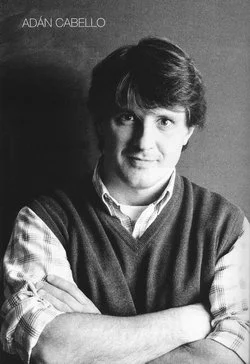Meet the FoQaCiA partners: University of Seville
The University of Seville is one of the FoQaCiA partners, and the PI at that node is Prof. Adán Cabello. The main activities of FoQaCiA node have been on Workpackage WP1, which focuses on the modelling of causality and different notions of nonclassicality allowed by quantum mechanics, in particular Bell nonlocality and contextuality.
Prof. Adán Cabello, the FoQaCiA PI at the University of Seville.
Here are some of the recent contributions of the Seville node, on ways to characterize these resources, and proposing methods that use them for benchmarking quantum computers:
Experimental Quantum Advantage in the Odd-Cycle Game. P. Drmota, D. Main, E. M. Ainley, A. Agrawal, G. Araneda, D. P. Nadlinger, B. C. Nichol, R. Srinivas, A. Cabello, D. M. Lucas; arXiv:2406.08412 [quant-ph]. https://arxiv.org/abs/2406.08412
Generating multipartite nonlocality to benchmark quantum computers. Jan Lennart Bönsel, Otfried Gühne, Adán Cabello; arXiv:2406.07659 [quant-ph]. https://arxiv.org/abs/2406.07659
Perfect quantum strategies with small input cardinality. Stefan Trandafir, Junior R. Gonzales-Ureta, Adán Cabello. arXiv:2407.21473 [quant-ph].
Lifting noncontextuality inequalities; Raman Choudhary, Rui Soares Barbosa, Adán Cabello; Physical Review A 109, 052216; 10.1103/PhysRevA.109.052216; 10.48550/arXiv.2401.12349 https://arxiv.org/abs/2401.12349
Test of the physical significance of Bell nonlocality; Carlos Vieira, Ravishankar Ramanathan, Adán Cabello; arXiv:2402.00801 [quant-ph]; 10.48550/arXiv.2402.00801; https://arxiv.org/abs/2402.00801
About FoQaCiA
The FoQaCiA project aims to advance the understanding of the fundamental principles and methodologies that underpin the development of quantum algorithms. This includes exploring new algorithmic frameworks, optimizing existing quantum processes, and identifying innovative approaches to leverage quantum computing's unique capabilities. The project involves 11 partners from Canada and the EU, and is funded by NSERC, the European Commission, and UKRI. The project started in October 2022, and has already resulted in 7 open software packages and 57 preprints and papers, among other outputs.

